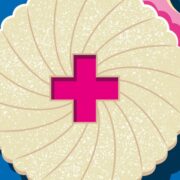Managing Type 1 Diabetes Is Tricky. Can AI Help?
In a simulation, AI learned fast and helped virtual patients meet their blood glucose targets. Can machine learning be trusted to help real people too? ..
In a simulation, AI learned fast and helped virtual patients meet their blood glucose targets. Can machine learning be trusted to help real people too? ..

Industrially processed pizzas, cereals, and convenience foods are responsible for a host of diseases. Policymakers and doctors need to lead the food fight. ..
Patients and clinicians generate huge amounts of data that could advance care. But turning the system into an R&D powerhouse means ripping up the rules. ..
Poverty, housing, and the availability of green spaces all impact a population’s well-being. Governments need to start acting like it. ..
Early detection is crucial for treating eye disease. AI-enhanced eye scan analyses could spot warning signs quicker—and reach patients at scale. ..
Virtual wards provide people with remote care and monitoring, allowing patients to go home sooner and hospitals to run more efficiently. ..
Psilocybin is on the cusp of becoming legally available in Oregon—but not as a medical treatment. ..
Services like Maven are improving outcomes across key areas of women’s health care—from emergency medicine to maternity services. ..
The 100,000 Genomes Project has a massive database to help doctors and patients solve baffling medical cases and diagnose cancers. ..

Hospitals are evolving at warp speed, and autonomous surgical robots are just the beginning. ..